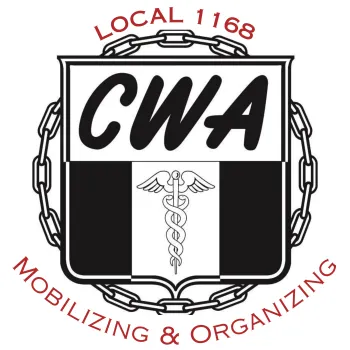
If you are interested in organizing your workplace and joining a union; to discuss the process and potential advantages of a unionized workfoce please reach out to:
Director of Organzing - Mary Nowocien via email at [email protected]
Why Join A Union?
Unions won us weekends.
Unions won us paid time off.
Unions won us sick leave.
Unions won us social security.
Unions won us a minimum wage.
Unions won us equal pay.
Unions won us anti-discrimination laws.
Unions won us the eight hour work day.
Unions won us overtime pay.
Unions won us child labor laws.
Unions won us the 40 hour work week.
Unions won us employee pensions.
Unions won us collective bargaining rights.
Unions won us age discrimination laws.
Unions won us whistleblower protection.
Unions won us privacy rights.
Unions won us parental leave.
Unions matter.
The Union Difference
The "union advantage" - more money in union members paychecks - exists in almost every occupation, from service to factory workers to healthcare and profressional employees. When union membership declines, so do wages and benefits. This is why so many corporations are against a Unionzie workplace! In 2019, workers covered by union contracts earn 11.2% more than their peers in similar occupations in non-unionized workplaces. This wage advantage is known as "union wage premium."
** Statistics are all per the U.S. Department of Labor, Bureau of Labor Statistics
| Employee Benefit | Union | Non-Union |
| Access to Medical Benefits | 95% | 68% |
| Paid Time Off (Vacation / Sick) | 91% | 68% |
| Pension Plan | 79% | 17% |
The Seven Basic Rights Of Union Members
Union members negotiate a contract with their employer. This collective bargaining agreement spells out terms and conditions under which they work. The contract is a legally binding agreement. A contract will contain seven basic rights that unorganized employees do not have.
- RECOGNITION - The employer must recognize the Union. The employer must negotiate by law with the Union. Union members put together proposals to present in negotiations and elect a committee of their co-workers to present these proposals to the employer or their representative.
- REPRESENTATION - Union members have the right to be represented in any proceedings before the employer. Union members do not face management alone. Members have the right to take a union representative to any meetings that may involve discipline or if there is an issue regarding job rights.
- NO DISCRIMINATION - Union contracts contain strong "No Discrimination" clauses.
- SENIORITY - Years of service count in collective bargaining agreements. Seniority counts if there is ever a layoff, the least senior must be laid off first. It counts in transfers and promotions, the most senior qualified person gets the promotion. All union jobs are posted and these jobs are awarded based on seniority. It is not up to the employer to pick and choose who will get the job. Seniority also determines how vacation time will be scheduled and how much vacation time members will get.
- MANAGEMENT RIGHTS ARE LIMITED -Management continues to make the rules governing the facility but they must be FAIR rules. The employer is prohibited from making any "arbitrary or capricious" decisions.
- JUST DISCIPLINE - The employer may discipline employees for "just cause" only. Union members are guaranteed a meeting on any disciplines brought against them. Union members can grieve disciplines or other derogatory actions they believe to be unfair. The employer has the burden of proof in a suspension or termination case.
- GRIEVANCE/ARBITRATION - If an employer violates your Union contract, union's have the right to file a grievance.
These grievances are handled with the help of a representative in the member's workplace. The important difference in the grievance procedure under a Union contract versus a non-union employer "policy" is that the Union can take a grievance to binding arbitration, depending on the facts of the case. An arbitrator's decision
The Law Is Not Enough
The Fair Labor Standards Act, which sets basic minimum wage and overtime pay standards and regulates child labor, does NOT require:
Premium pay for weekend or holiday work;
Pay raises or fringe benefits (such as contributions to health insurance pensions);
Reason for discharge;
Any limit on the number of work for persons 16 years of age or older.